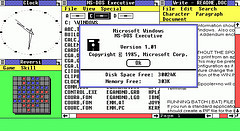No, Microsoft Techs Are Not Proactively Calling You About Your Error Messages
Software crashes. And sometimes when it does, you get the option of sending an error report to the developer. You’ll never hear back, because that’s not the purpose of the report. But that hasn’t stopped scammers from pretending they are Microsoft techs responding to your crash reports.
The L.A. Times’ David Lazarus reports on one Southern California man who says he’s been getting calls once a week from people claiming to be from the Windows Maintenance Department or Microsoft Tech Support. The callers say they are reaching out because of the unusual number of error messages sent from his computer.
“Microsoft doesn’t look at all those error messages it gets,” the man, a retired computer engineer says about the scammers. “Maybe they use them to improve their products, but they don’t respond individually. It was obvious the callers were up to no good.”
While this particular user was savvy enough to avoid falling prey to the scam, Lazarus found that the deception seems to work in one of two ways.
Both ways begin with the “tech support” scammers telling victims to look at their computers’ events log. They will then try to convince the victims that something innocuous on the log is actually evidence of a virus. The scammer then directs victims to a website to download software that the caller claims will remove the virus.
One version of the scam convinces the victim to provide their credit card info to pay for the software. The card is then used to buy anything but useful anti-virus software.
Or the scammer can give away the useless software for free. Once the software is installed, the scammers can hijack the victim’s computer and its contents.
Microsoft confirms that is does “not send unsolicited email messages or make unsolicited phone calls to request personal or financial information or fix your computer… If you receive an unsolicited call from someone claiming to be from Microsoft tech support, hang up. We do not make these kinds of calls.”
The director of Microsoft’s Trustworthy Computing division put it even more plainly: “Treat callers as you would treat strangers in the street… Do not disclose personal or sensitive information to anyone you do not know.”
Microsoft making house calls? No, it’s a scam [L.A. Times]
Want more consumer news? Visit our parent organization, Consumer Reports, for the latest on scams, recalls, and other consumer issues.


